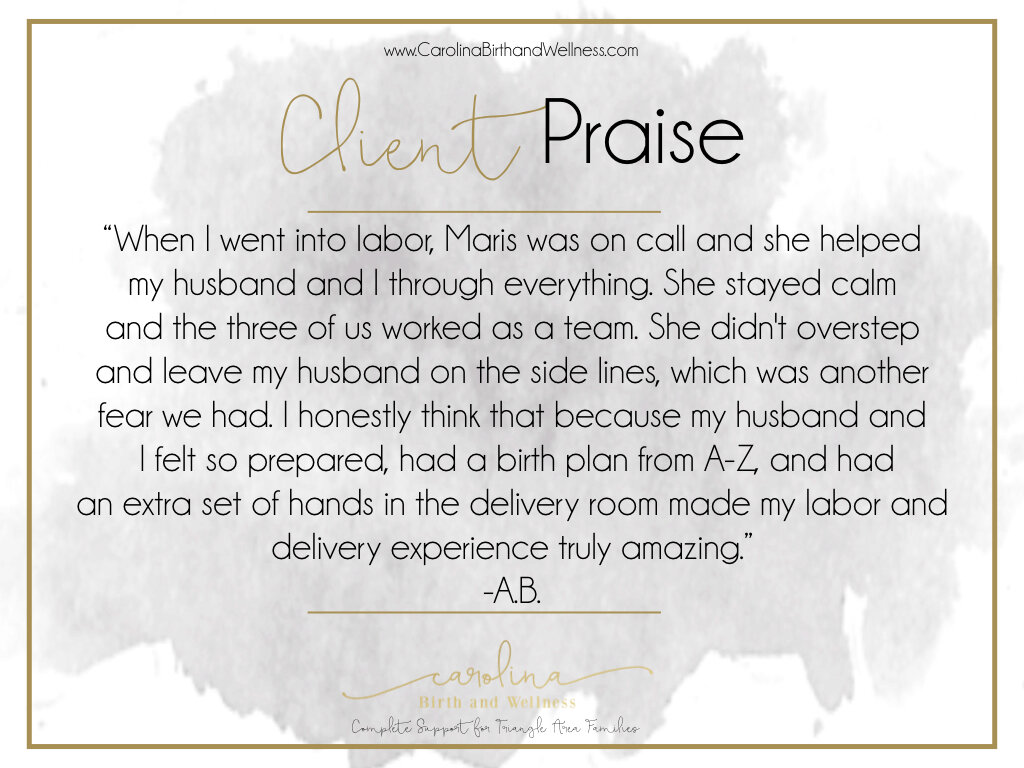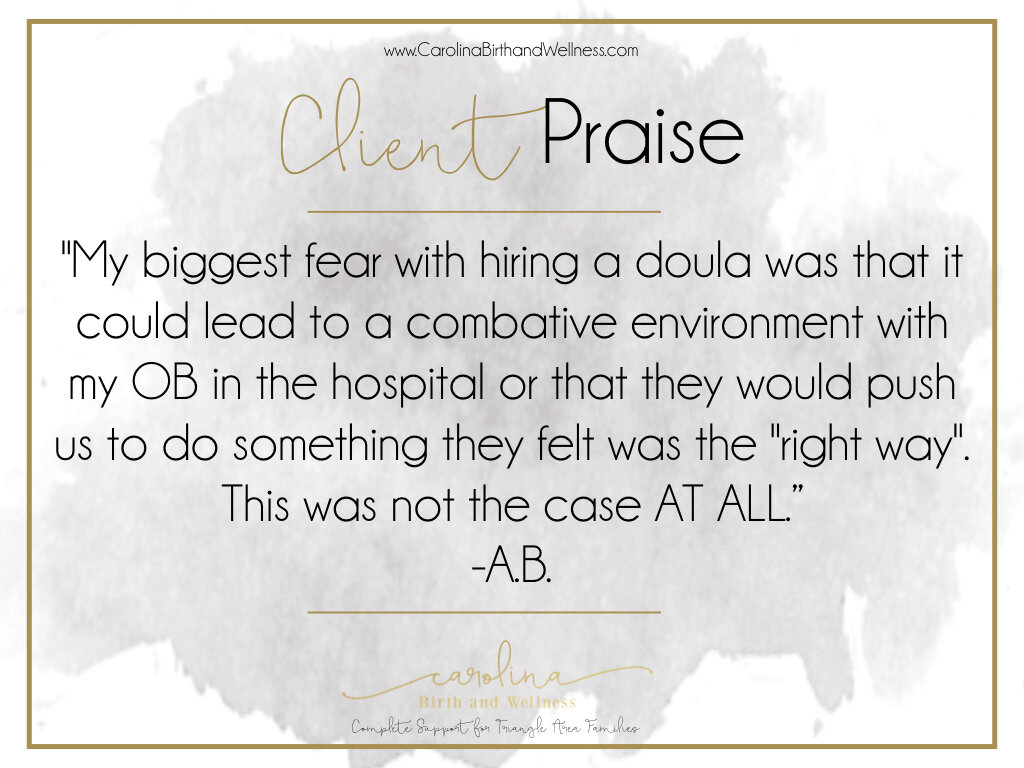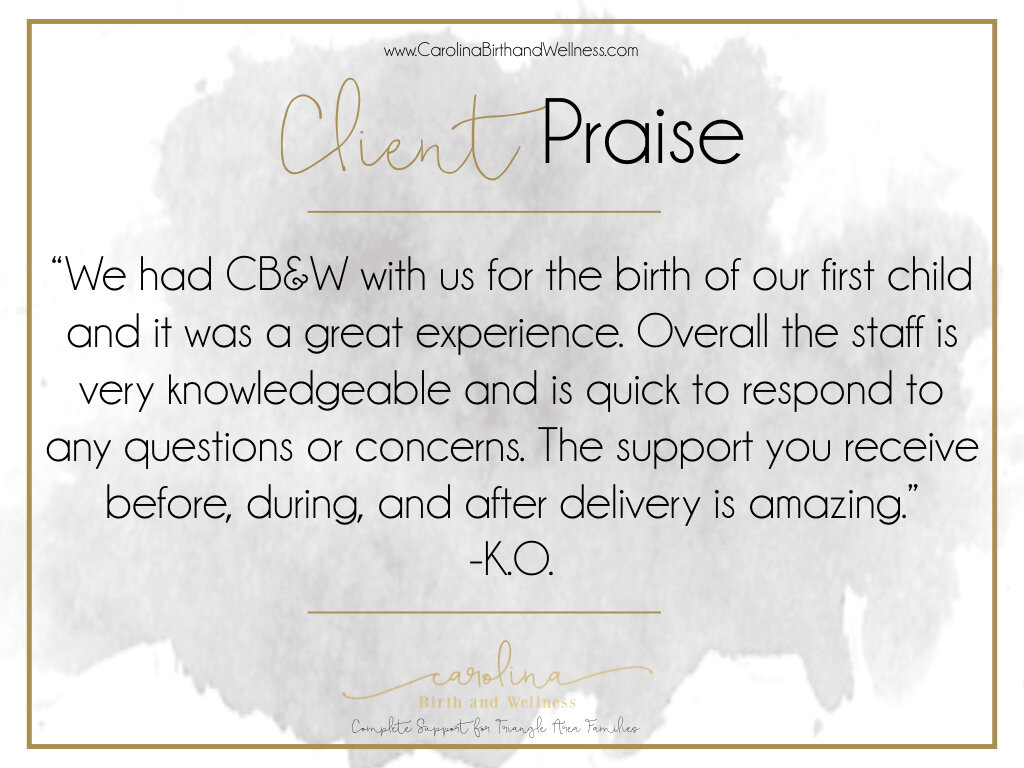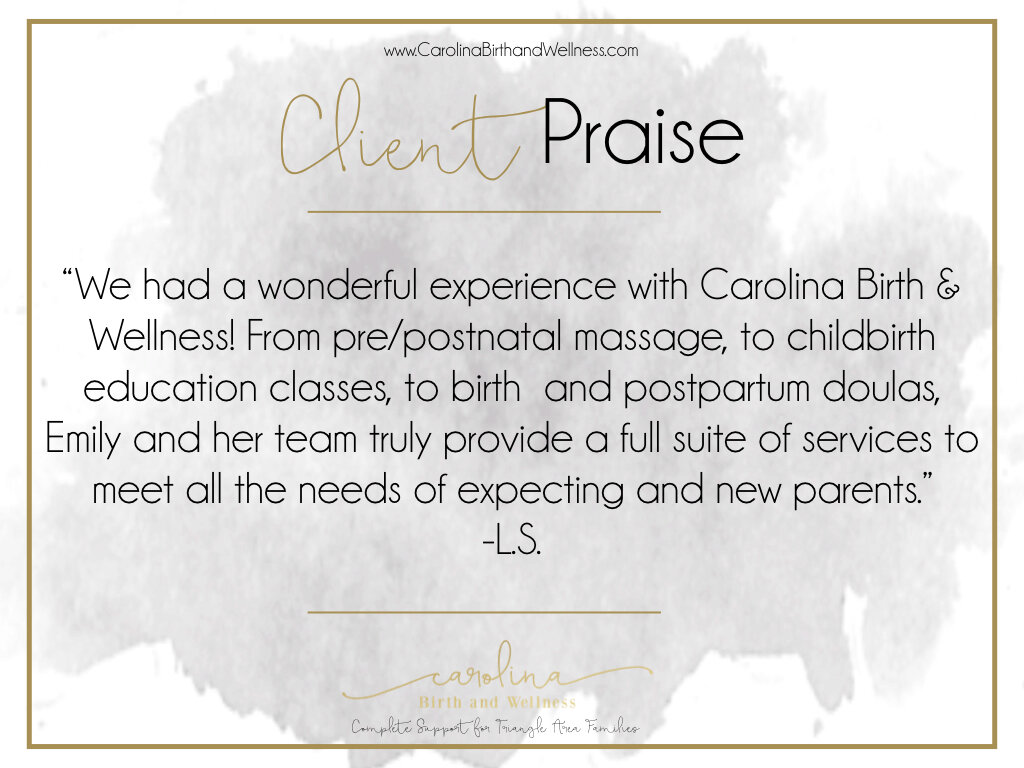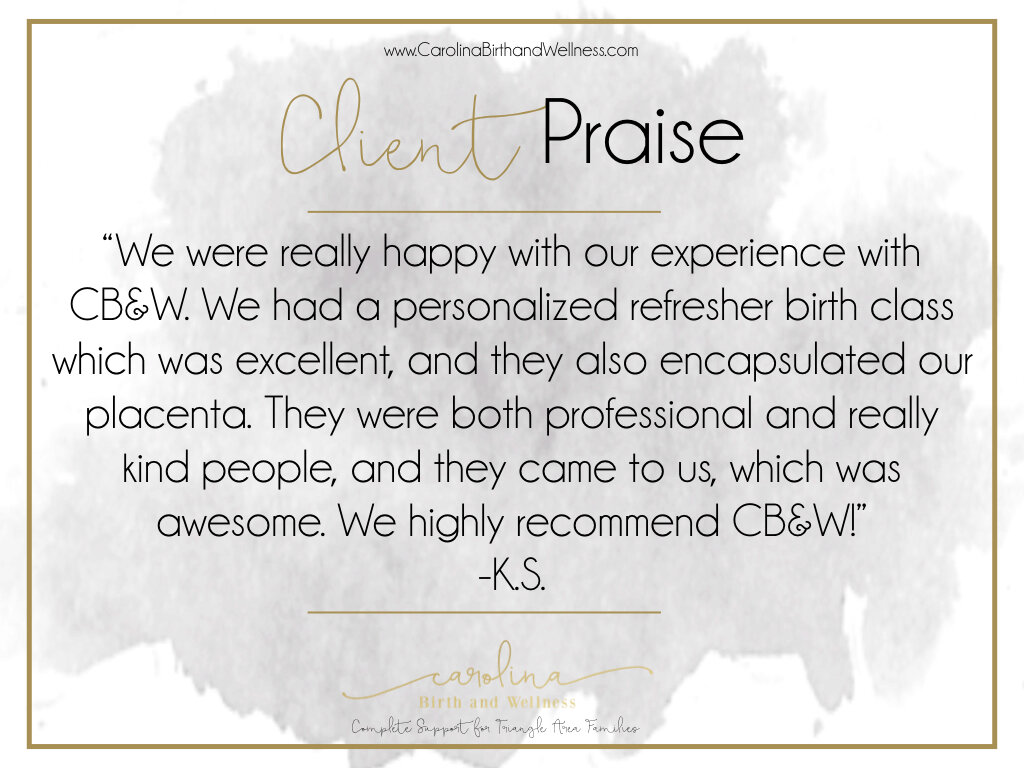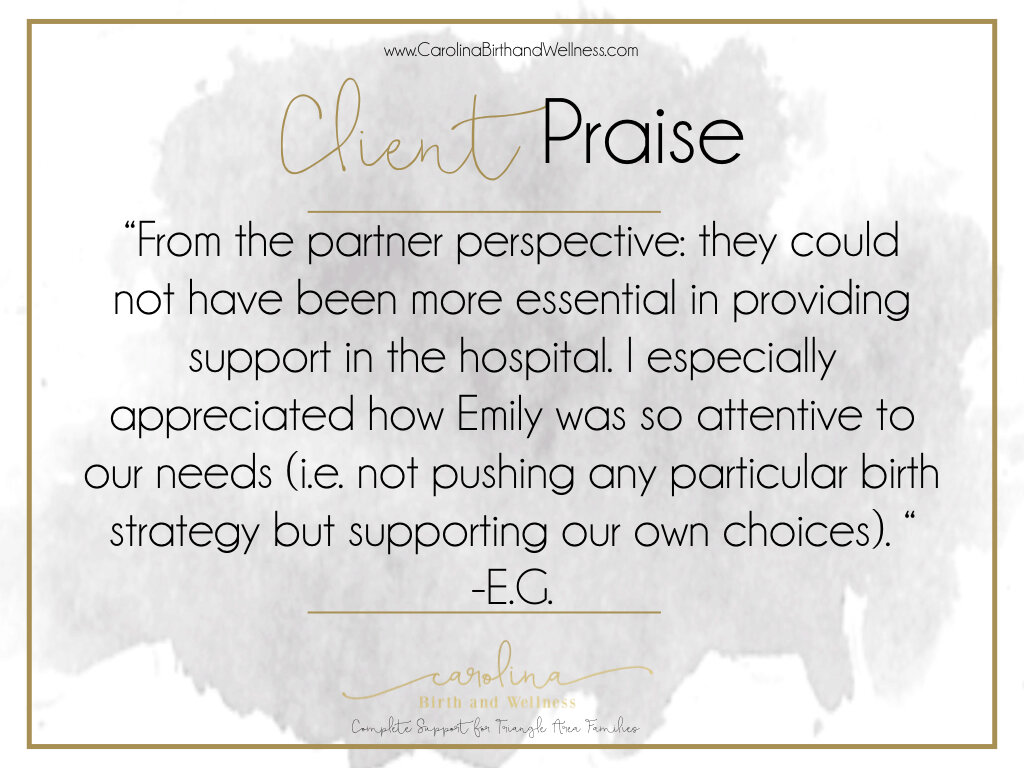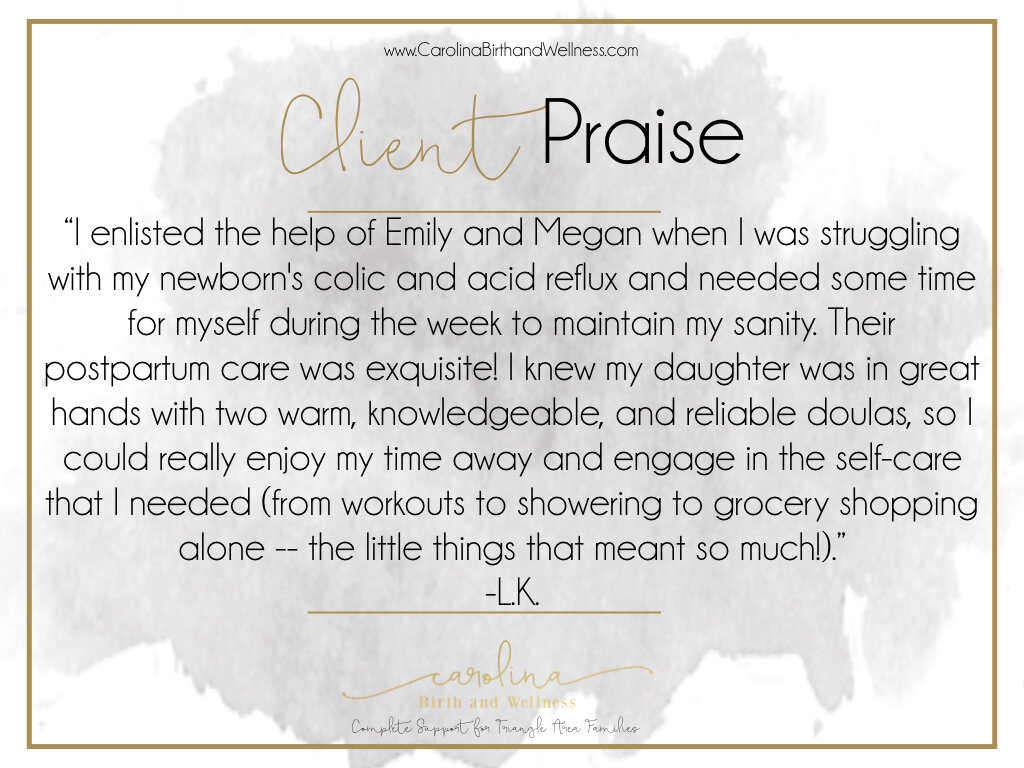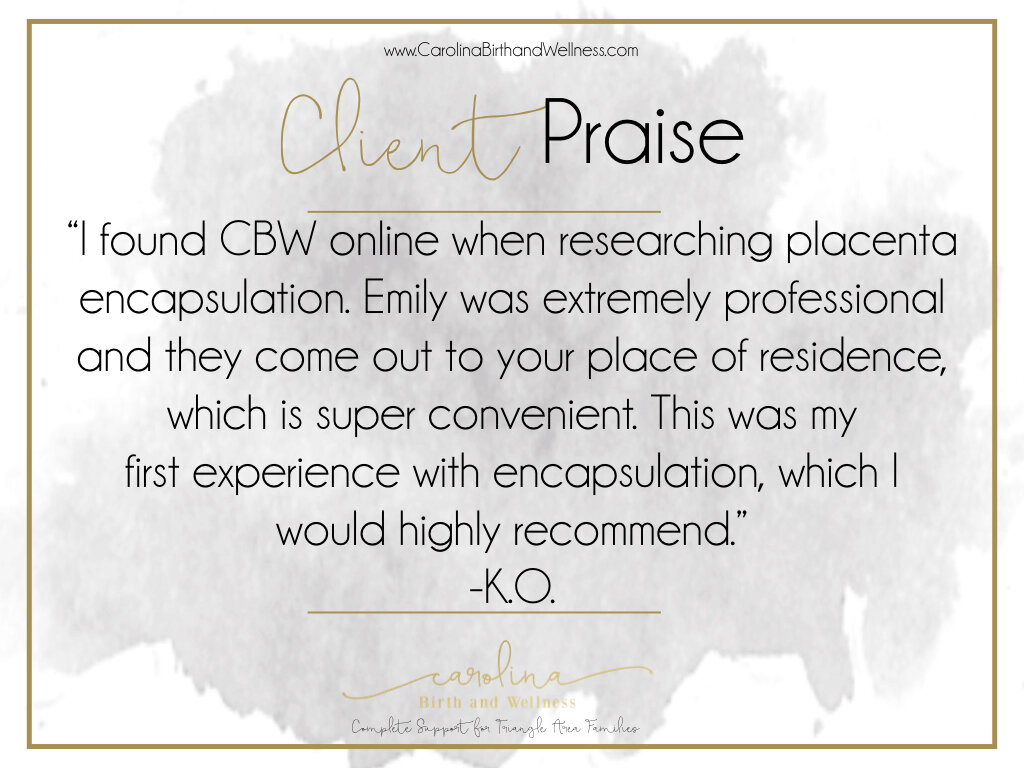When to NOT Have Your Placenta Encapsulated
We have been talking about the wonderful benefits of placenta encapsulation lately, but it also important to understand the risks as well as contraindications that are associated with placenta ingestion and encapsulation.
Risks of Placenta Consumption
The risks that can come from placenta consumption usually relate to unsafe transportation and storage of the placenta or unsanitary work conditions. At Carolina Birth and Wellness, we pride ourselves on following the highest safety standards in the industry, and are constantly staying informed on any developments in the placenta encapsulation world to minimize the risks.
Prior to birth, we provide a detailed handout and educate our clients on how to store and transport their placenta. This means our clients are aware of the importance of the their placenta not being sent to the pathology lab, how long a placenta can be in left at room temperature and how long it can be left in the refrigerator prior to being processed. With the provided transport kit that follows the W.H.O. guidelines for organ transportation, we know the placenta was properly transported to the clients prior to us beginning to process it.
Since we encapsulate in our client’s homes, there is no risk for outside contamination. Our clients can either clean the kitchen themselves prior to our arrival, or watch as we clean our work space completely prior to beginning the process.
The final risk associated with placenta consumption is that the placenta was not dehydrated long enough, and mold, fungus, or a bacterial contamination develop within the capsules. This is prevented by our Placenta Encapsulation Specialists not rushing the process, and allowing the appropriate time for the dehydration to occur.
Contraindications of Placenta Consumption
There are times when a placenta can absolutely not be consumed safely. We recommend that all clients are in communication with their medical team about their wishes to save and encapsulate their placenta, as your medical team will know when your placenta cannot be released. Some of these reasons include:
- Uterine infection
- Cancer of the placenta
- Heavy smoking or drug use during pregnancy
Furthermore, we cannot encapsulate a placenta that has been sent to the pathology lab and strongly recommend that our clients do not allow the placenta to be taken out of their birthing room.
So while there are some risks and contraindications associated with placenta consumption, we believe that our safety standards minimize the risk as much as possible. If you do end up having one of the aforementioned contraindications where you doctor or midwife believes it unsafe to release your placenta, we will refund the balance of what you paid without question.
Learn how to start the process now.


